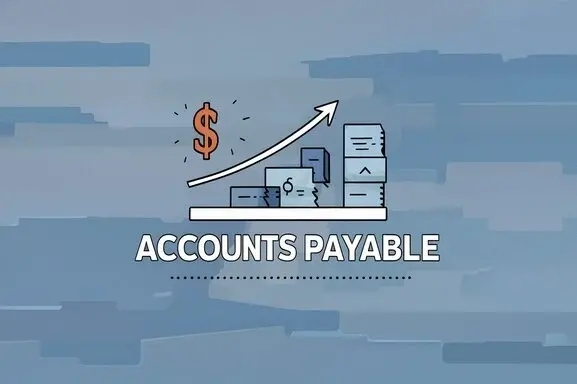Do Accounts Payable Have Interest?

Accounts Payable or AP for short does have interest as there is always interest linked to money.
To find answers to common questions on accounting for small businesses, turn to this article. One common question is: whether the account payable accumulates interest. Understanding the answer, it will enable you to effectively organize your financial responsibilities on how they must be paid back. To facilitate the understanding of this subject, this article will outline what accounts payable are and if they attract any interest, followed by techniques on how to manage accounts payable effectively.
What are Accounts Payable?
Accounts payable are the amounts of money that your business has to pay to creditors such as vendors, suppliers, contractors, or anyone else that you have borrowed goods or services from. Common examples include:
- Accounts receivable include on-hand inventories, raw materials, and receipt of services from suppliers
- Unpaid charges/fees relating to contracts with contractors
- Outstanding utility charges but not yet consumed
- Credit card balances owing on credit cards with a balance due
- Outstanding rent, lease, or mortgage payments or other similar dues where payment has not been made as agreed.
In simple terms, accounts payables refer to all the short-term debts that your business will need to meet within one financial year or any other short period. Managing accounts payable includes the ability to monitor them as a source of information on cash flow, for tax and your business.
The following question could also be asked: Do Accounts Payable attract any interest?
In general, the accounts payable are organized in a non-accrual manner and therefore bear no interest. These include monies owed to suppliers, vendors, landlords, and so on Many small businesses negotiate credit terms with their suppliers to pay bills 30 to 90 days without accruing interest.
However, some longer-term accounts payable may accrue interest if payments are late:
- Credit Card Payables: By far the most common method that credit card providers initially apply is to charge comparatively high interest rates (15% - 25% APR) for any outstanding balances after the due date. Daily interest is charged on the average daily balance which means the interest keeps accumulating daily.
- Long-Term Loans: Frequency: Bank credit, mortgage, and other forms of credit and financed purchase include interest rates. This means that you will be charged interest on the amount you paid in the future depending on the agreement, you signed with the lender. Such liberties may attract penalty fees together with higher rates of interest if the borrowers fail to meet the loans.
- Tax Debts: If for example you have unpaid taxes to the IRS, and you fail to pay them before the due date, the IRS will penalize the unpaid balance with certain fees as well as interest charges. The IRS interest rates are fairly low though ranging between 3%-7% as an APR, however, the penalties are very high. State taxes can also attract interest and penalty charges whenever the amount due is not paid within a specified time.
Managing accounts payable is a critical function in any business and it involves the following practices:
Most small business needs to implement measures as strategies for the efficient handling of accounts payable.
Here are some top tips:
- The following measures should be taken:
– Pay bills on time - This is very important because, in case of delay, you end up paying more than you ought to pay this is due to the extra charges that accompany the overdue payment.
- Early payment discounts – Since it is essentially an interest rate in reverse, some sellers will allow customers to make payments even earlier than due and at a lower cost.
- Focus on high er percent interest debts first – This is crucial if the business is cash-strapped; it’s better to pay credit card balances, loans, and financing agreements before due supplier payments or rent.
- Extend payment terms and consolidate suppliers – Long payment terms may be an effective way to stretch out the time before you need to pay the bill, but it’s also possible to negotiate with your suppliers to get better terms and make the payment earlier.
- Subscriptions – Using accounting software or billing services minimizes the chances of making errors while keeping you informed on your outstanding debts.
The Bottom Line
Most of the time, accounts payable do not have an interest rate like what we have in most long-term financing and debts have an interest and penalty for non-payment. Keeping track of the expenditures and timely payment of the bills that are due for payment helps in avoiding the additional charges that may hamper the operations of the business. Implementing accounts payable best practices is beneficial for small businesses as it leads to the realization of cost savings and enhanced financial control.
Contact us here for accounts payable services now!

